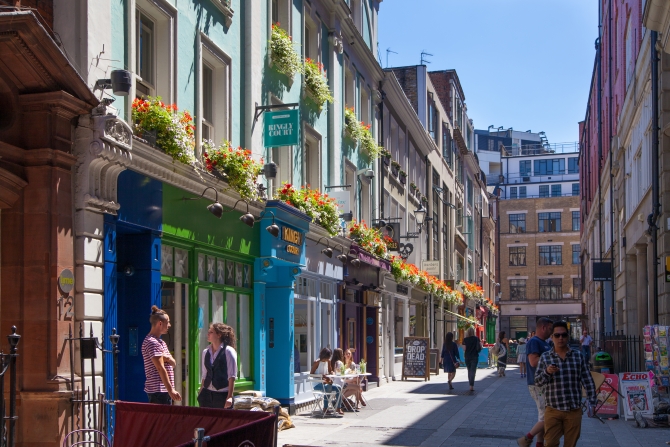During the recession, the overwhelming focus of the retail industry was directed towards the high street and the ensuing drop in occupancy levels that occurred after the financial crisis. However, although street teams such as the Portas Pilots continue to channel huge amounts of funding into initiatives designed to draw in consumers, it seems that the worst may be over for the high street according to the British Retail Consortium (BRC).

According to the BRC/Springboard footfall monitor, total footfall decline slowed to just -0.7 per cent during December, indicating that bricks and mortar retailers are finally beginning to make an impact in the fight back against online e-tailers. Furthermore, the high street defied expectations by analysts that footfall would drop significantly over Christmas by posting only a 1.8 per cent dip, well below the three month average of -2.3 per cent.
BRC director general Helen Dickinson hints that retailers may continue to see improvement as the year progresses should they implement changes necessary to attract the attention of consumers.
She says; “A decline of 1.8 per cent in the number of high street shoppers might not at first glance look like great news for retailers, but it’s heartening to see the pace of decline in high street footfall slowing so dramatically from November to December.
“What we are seeing currently is online and physical retailing finding out how they can best fit together in the new multi-channel world.”
Shopping centres also proved immensely popular with festive consumers, as the drop in footfall of just 0.1 per cent in these developments came in well below the three month average of a 1.2 per cent decline.
Yet once more it was out of town retail destinations which proved to be the retail industry champions, posting a year on year rise of 1.3 per cent – proving, according to retail insights director at Springboard Diane Wehrle, that consumers will remain interested in traditional bricks and mortar stores should incentives such as free, plentiful car parking and a wide variety of options remain open to them.
Ms Wehrle says; “Footfall across the UK in December belied the prevailing furore over the impact on bricks and mortar stores of both Black Friday and the move to online shopping, with just a modest drop of 0.7 per cent from December 2013.
“Whilst online shopping becomes ever more mature and shoppers are increasingly demanding in terms of choice and flexibility to buy, the improved footfall position of our retail destinations in what is our peak trading period of the year indicates that online is driving activity back into bricks and mortar stores.
“As yet it is inconclusive as to the relative influence of showrooming and click and collect in the omni-channel experience, but what is clear is that if retailers want shoppers to continue to visit their stores then ever more investment is required to deliver the heightened shopping experience that is now demanded.”
Previous Post
Warrington Office Market exceeds Expectations